The Substance Abuse and Mental Health Services Administration (SAMHSA) on Monday issued a final rule to update the Confidentiality of Substance Use Disorder Patient Records known as 42 CFR part 2 (or “part 2”) regulations, further aligning the regulations with other healthcare delivery rules.
Key changes include:
- Part 2 programs may share information verbally with a non-part 2 provider without subjecting the non-part 2 record to the requirements of part 2, as long as the non-part 2 provider segregates specific substance use disorder (SUD) records.
- Patients may consent to disclosures without naming a specific individual to receive this information; the update provides instructions for disclosures to exchanges and research institutions and provides guidance on disclosures related to care coordination and case management.
- Non-part 2 providers are not required to redact information in their medical records and may redisclose information if the patient has signed a written consent, or if the disclosure is otherwise permitted under the regulations.
- Written consents expressly allow sharing information with 18 types of payment and healthcare operations, including for care coordination and case management.
- Non-opioid treatment providers have access to central registries if they have a treatment relationship to the patient.
- Opioid treatment programs have new permissions to disclose information to prescription drug monitoring programs.
- During medical emergencies, information may be shared among part 2 programs or other SUD treatment providers during state or federally declared natural and major disasters.
- Disclosures for conducting scientific research may be made to non-Health Insurance Portability and Accountability Act (HIPAA) covered entities and those who are not subject to the Common Rule.
- Permits federal, state, and local agencies to conduct audits and evaluations.
- Extends to 12 months the period of placement of undercover agents or informants, which may be further authorized by a new court order.
These changes do not include provisions that recently became law in the Coronavirus Aid, Relief and Economic Security Act (CARES Act). CARES Act provisions are effective March 27, 2021.
This rule is expected to be published in the Federal Register this Wednesday, July 15, and will become effective within 30 days of its publication.
For questions about this rule, please contact Sarah Wattenberg, NABH’s director of quality and addiction services, at sarah@nabh.org.

